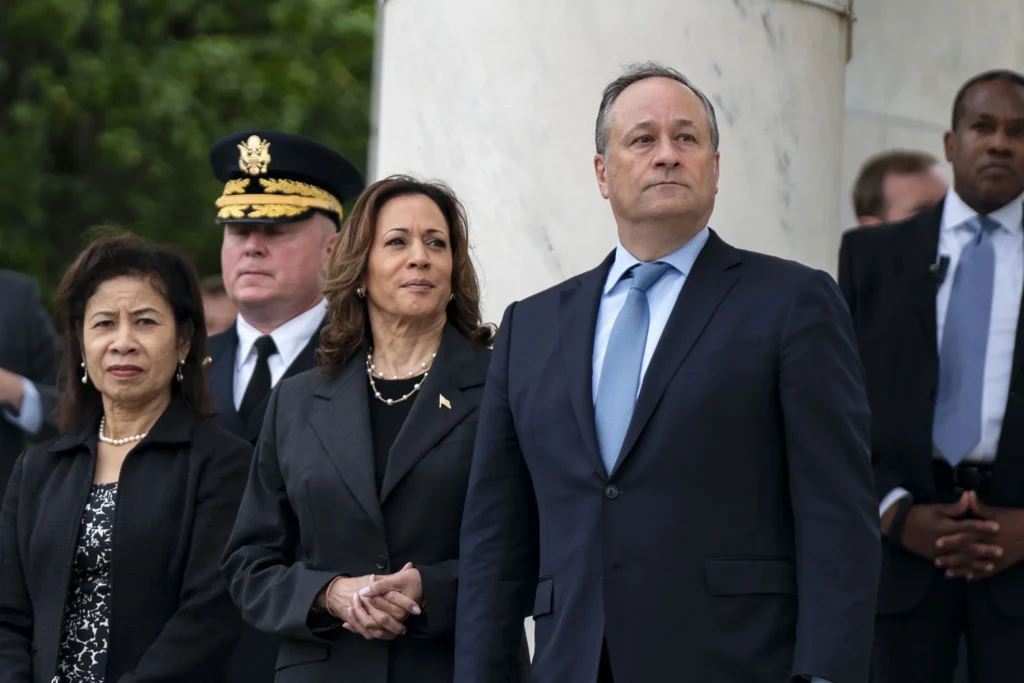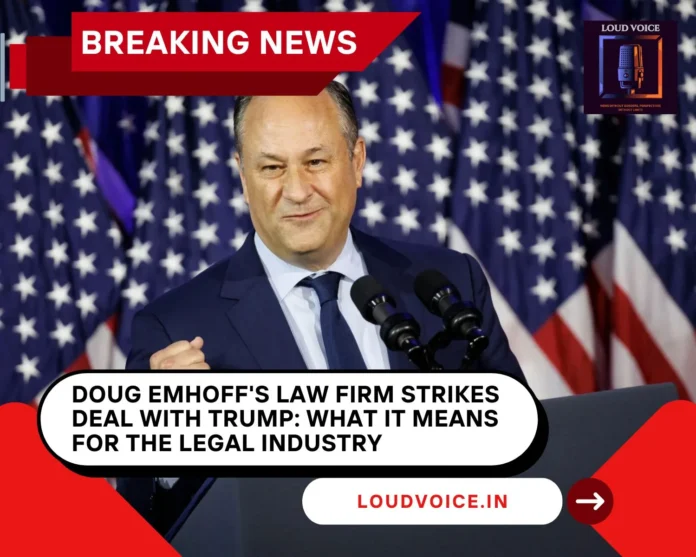Doug Emhoff’s Law Firm Strikes Deal with Trump: Introduction
The legal industry has witnessed a significant development as Doug Emhoff’s law firm, Willkie Farr & Gallagher, has struck an agreement with the Trump administration. This move has sparked debates over legal ethics, political influence, and the independence of the judiciary. Trump announced that the firm will provide at least $100 million in pro bono services, aligning with causes that his administration supports. The deal has been met with both support and criticism, particularly regarding its potential impact on legal representation and access to justice.
The Agreement and Its Key Terms
According to a statement released by the White House, Willkie Farr & Gallagher LLP proactively engaged with Trump’s administration to address concerns about legal industry practices. As part of the deal, the firm has committed to:
- Providing $100 million in pro bono legal services to veterans, Gold Star families, law enforcement members, and first responders.
- Refraining from diversity, equity, and inclusion (DEI) initiatives, a move that aligns with Trump’s broader stance on corporate DEI programs.
- Combating antisemitism as a core part of its legal advocacy efforts.
The firm’s chairman, Thomas M. Cerabino, reaffirmed that the agreement aligns with the company’s longstanding commitment to legal representation across diverse political viewpoints.
Controversy Surrounding the Deal
Despite the firm’s official stance, Doug Emhoff, husband of former Vice President Kamala Harris, reportedly opposed the agreement. Sources indicate that he expressed concerns to firm leadership but ultimately had no direct authority to prevent the deal from moving forward.

Legal experts and constitutional scholars have raised alarms about the implications of such agreements. Critics argue that these deals compromise the independence of law firms, especially those that have historically taken on cases involving civil rights and government accountability.
Erwin Chemerinsky, dean of UC Berkeley Law, voiced his concerns, stating that “capitulating to political pressure encourages further targeting of law firms”. This sentiment echoes broader fears that the Trump administration’s legal maneuvering could undermine the separation of powers within the U.S. government.
The Broader Impact on the Legal Profession
The deal with Willkie Farr & Gallagher is not an isolated event. Several other major law firms, including Paul, Weiss, Rifkind, Wharton & Garrison and Skadden, Arps, Slate, Meagher & Flom, have also agreed to similar terms under pressure from the Trump administration. These firms have pledged millions in legal services to initiatives backed by the administration.
At the same time, some law firms have taken a stand against such agreements, choosing instead to challenge the administration’s actions in court. Jenner & Block, for instance, has asserted its commitment to defending clients against “unlawful government action,” emphasizing that legal representation should remain politically neutral.
What This Means for Legal Ethics and the Rule of Law
Legal professionals are grappling with the ethical considerations posed by these agreements. The principle of unbiased legal representation is a cornerstone of the justice system, and any move that suggests firms must align with a political administration’s agenda raises concerns about due process and fair access to legal services.
A prominent Washington, D.C., campaign lawyer, speaking anonymously, highlighted the broader concern: “The justice system is built on the idea that everyone deserves competent legal representation, regardless of political affiliation.” The perception that law firms are being strong-armed into compliance with a political agenda is seen as a potential erosion of this foundational principle.
Conclusion
The deal between Doug Emhoff’s law firm and the Trump administration marks a pivotal moment in the legal industry. While some argue that such agreements expand access to legal services, others worry about the long-term consequences for legal independence and ethics. As law firms navigate this evolving landscape, the broader implications on legal advocacy, corporate governance, and constitutional law remain subjects of intense debate.
What are your thoughts on law firms striking agreements with political administrations? Share your opinions in the comments below.


